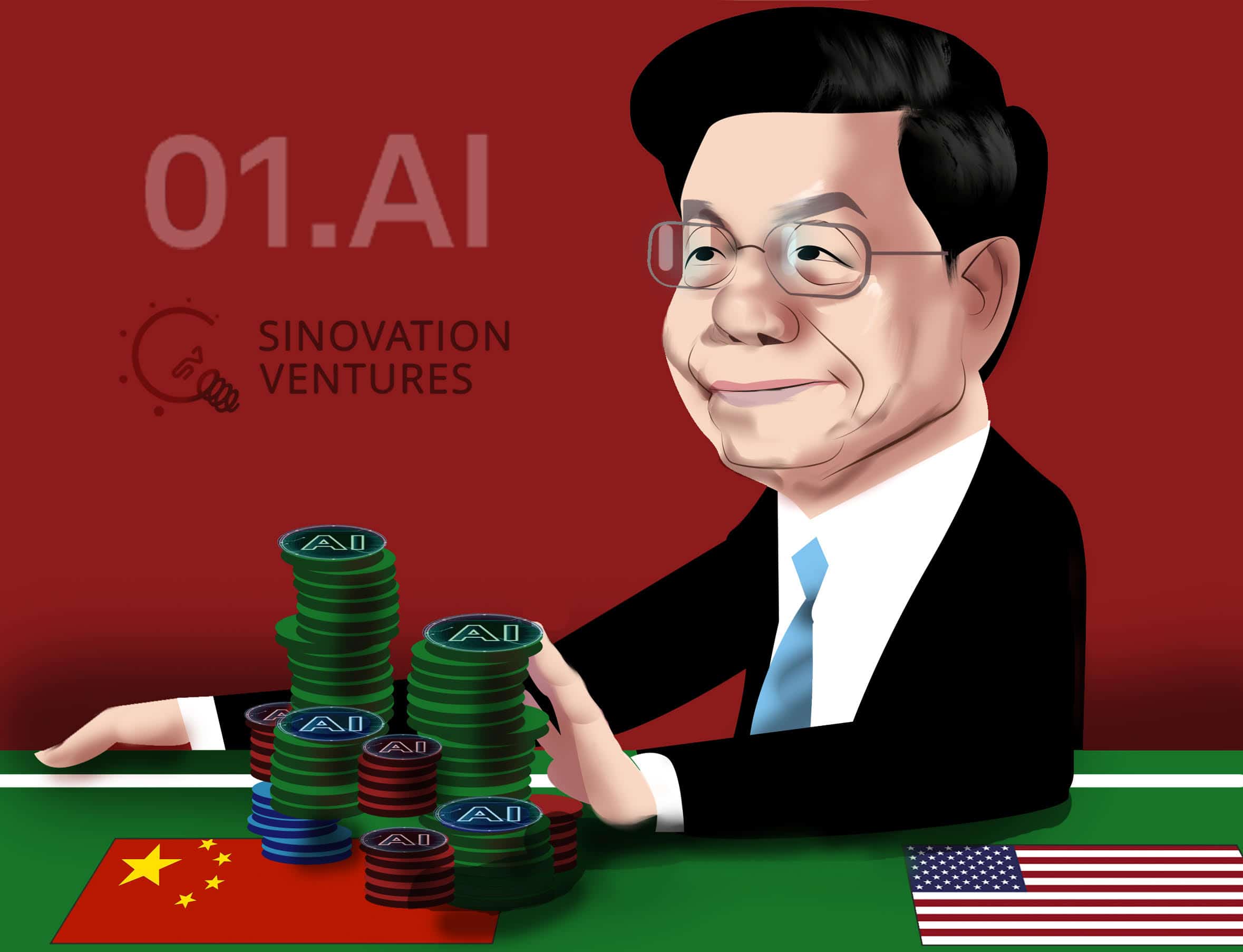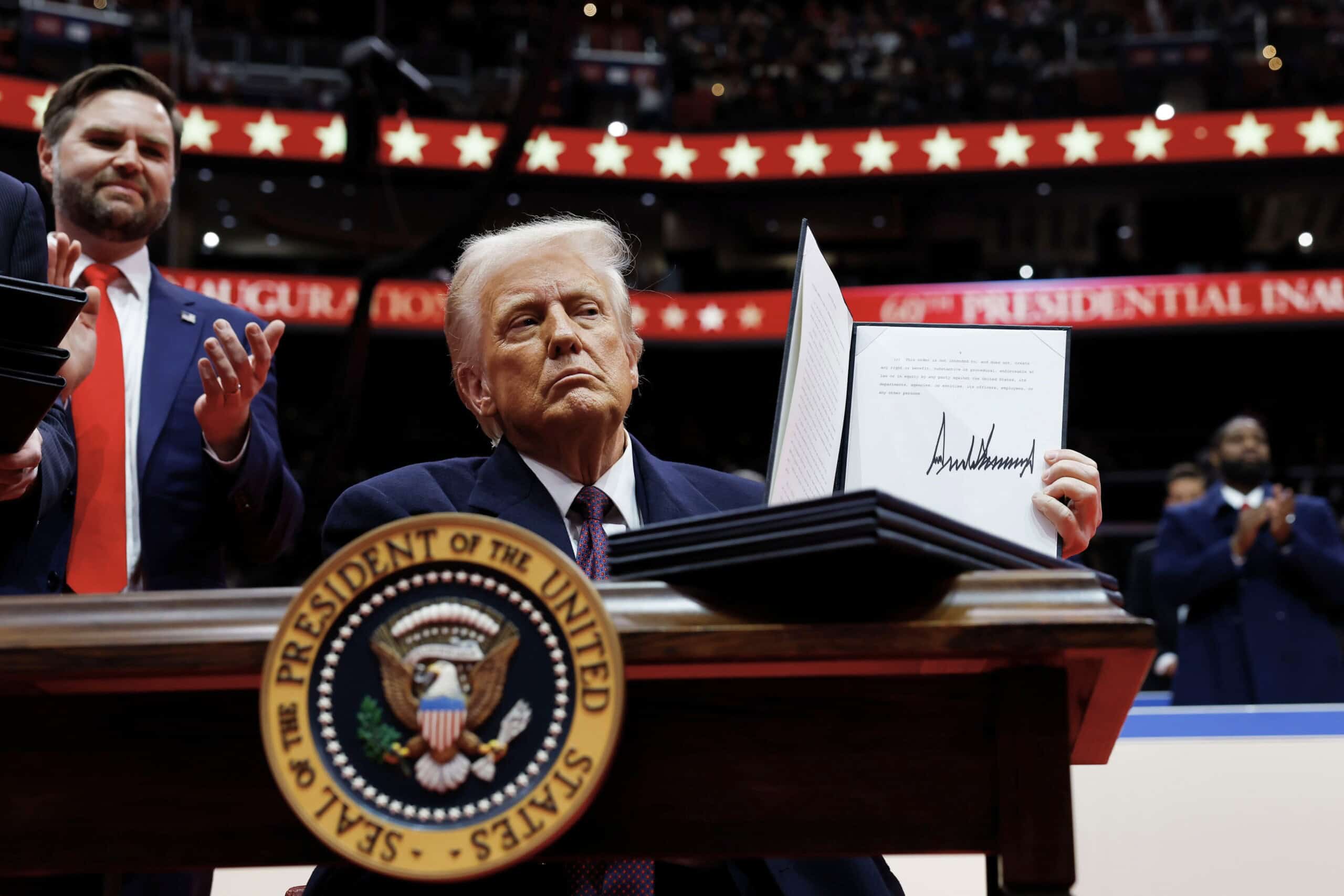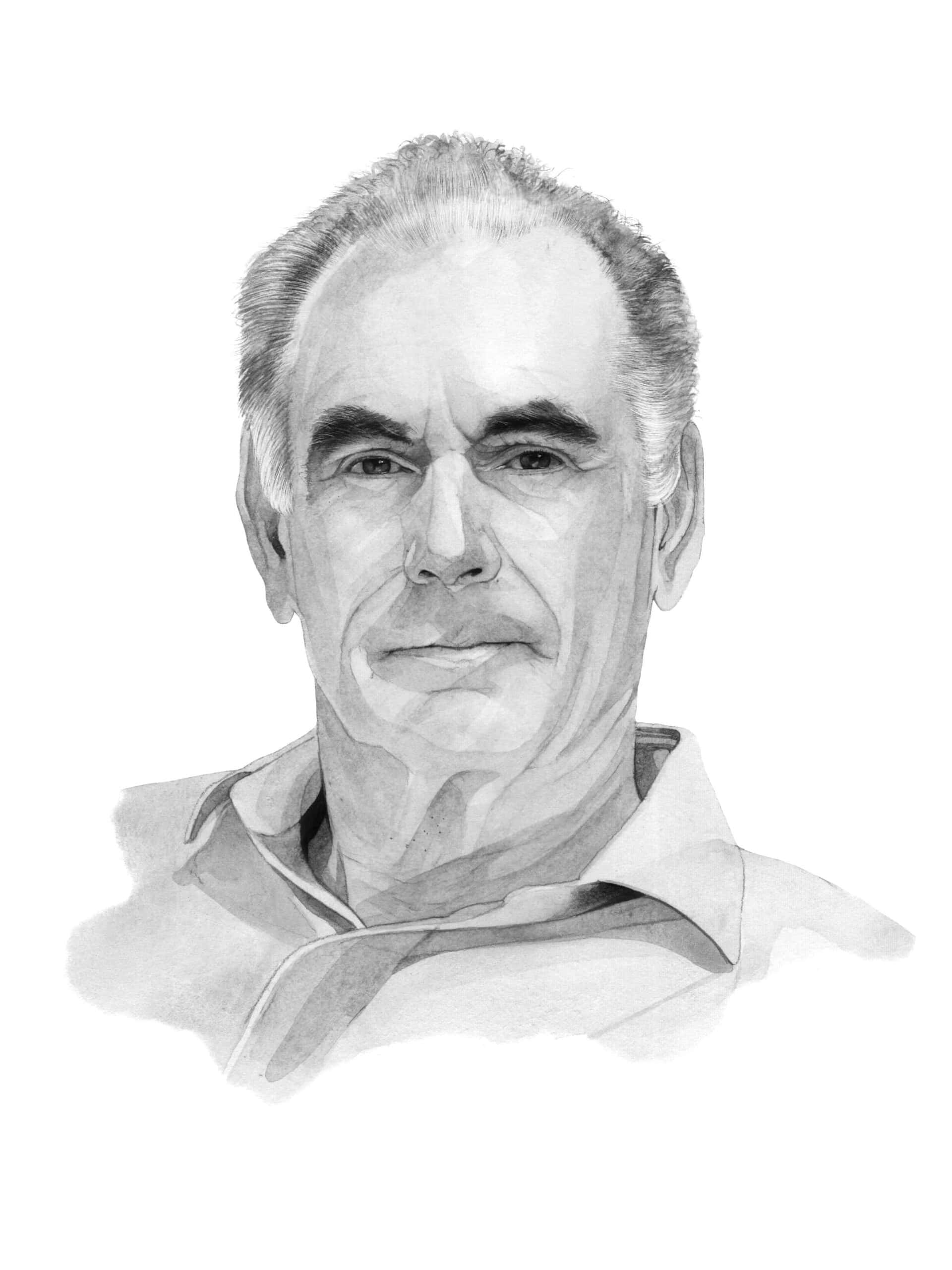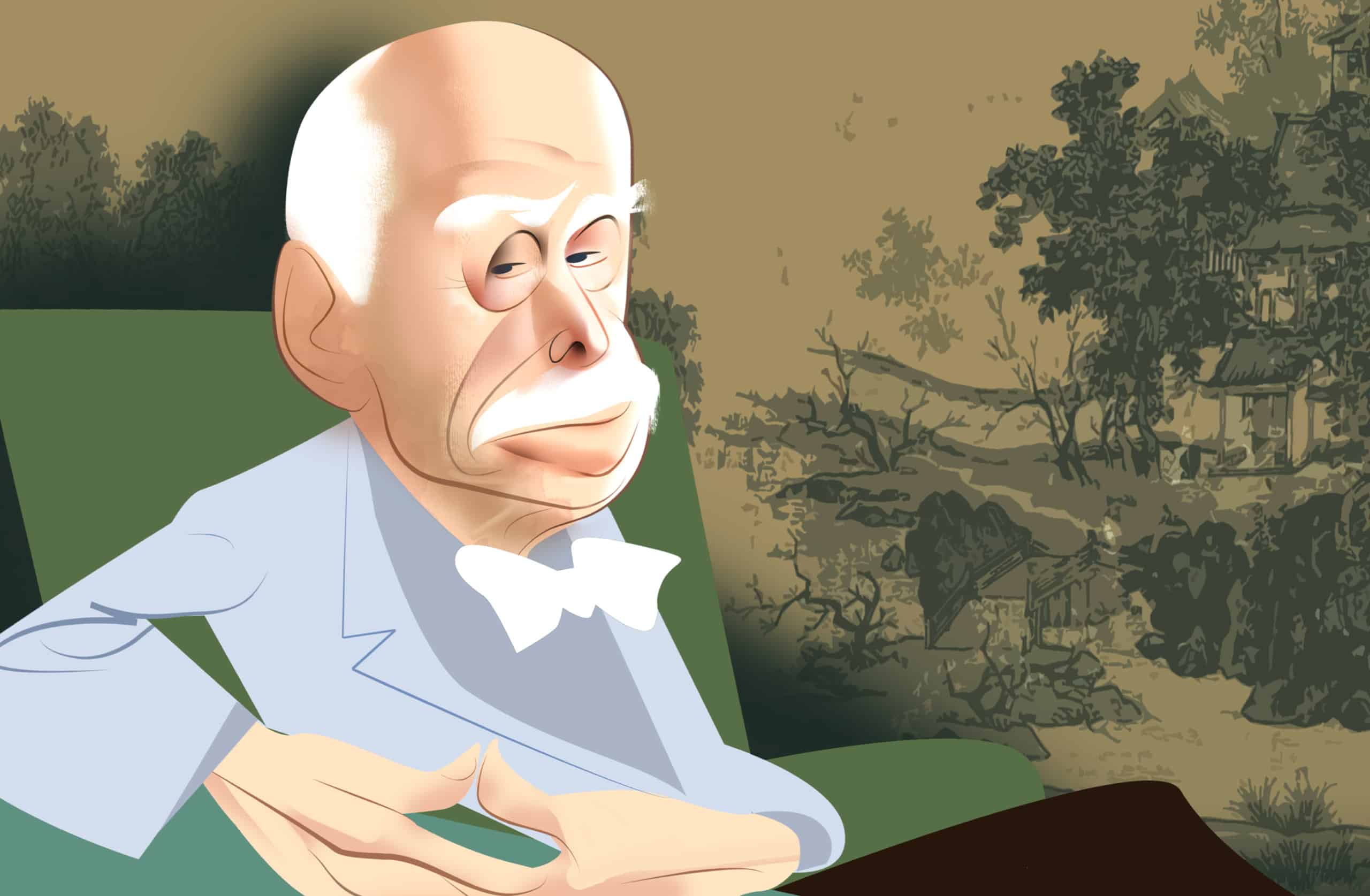
To call it a daring escape is an understatement. After four years in prison, Chen Guangcheng had spent another three years under house arrest with his family. The local government in Shandong province had covered his windows with metal sheeting, cut him off from all contact with the outside world, and sent guards to patrol his home around the clock.
Blind since infancy, Chen would have to not only evade the guards, but also somehow navigate his way through the village, undetected, to meet his get-away car. While drying laundry on their roof, his wife counted the steps he would need to take and the number of walls he’d have to climb along his route. The village was too quiet at night, so the escape would have to take place during the day.
On April 20, 2012, the blind, 40-year-old man embarked on his journey and, amazingly, a few days later he arrived at the U.S. embassy in Beijing, more than 300 miles away, having suffered nothing worse than a broken foot.
Chen was not unknown to U.S. observers: his imprisonment had gained press attention because he had tried to use China’s own legal system to stop the forced abortions and sterilizations taking place in his village. As a “barefoot lawyer,” he was self-taught and had organized fellow villagers for a class action suit. The Chinese Communist Party, wary of organized political actions, squashed the effort, despite passing a law in 2002 that guaranteed citizens an “informed choice” in family planning. Chen was imprisoned for “obstructing traffic,” and his house arrest had been indefinite.
The U.S. had been feverishly planning high-level political and economic talks with China, and now had to handle Chen’s arrival on its doorstep. “If we agreed to help Chen, there was a real chance that the Chinese leaders would be so angry they would cancel the summit,” Hillary Clinton, then the Secretary of State, recalled in her book, Hard Choices.
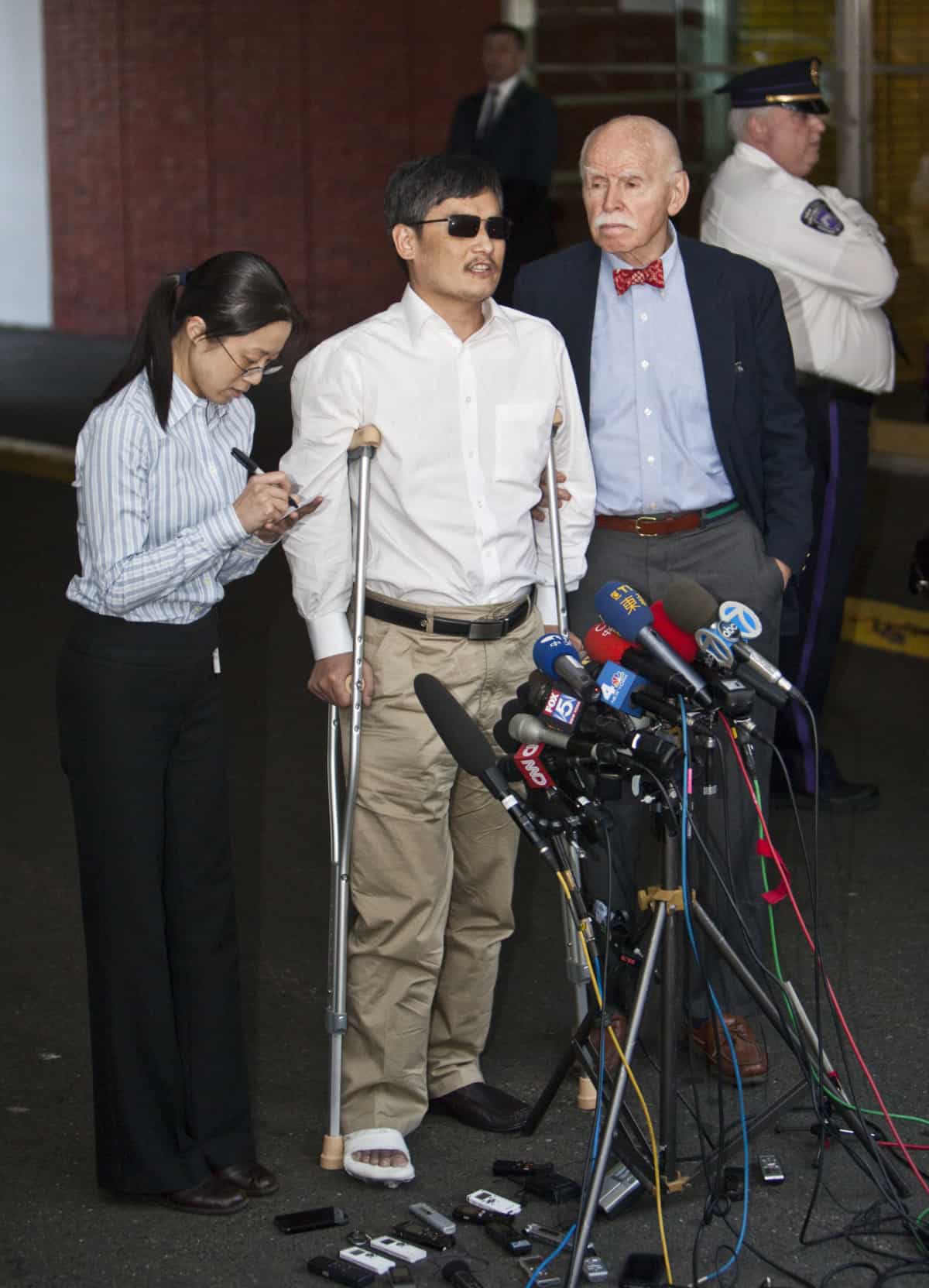
Credit: Ramin Talaie/Corbis via Getty Images
The U.S. embassy took Chen in and started frantic negotiations with Beijing. Over a rollercoaster few days, as U.S. officials tried to coax Chen to accept certain deals offered by the Chinese, Chen repeatedly said he needed to talk to Jerome A. Cohen, a then 81-year-old New York University law professor and one of the only people Chen felt he could trust.
Since the 1960s, Cohen has been the preeminent Chinese legal scholar in the United States. A pioneer in the field, he began studying China’s legal system before Americans were even permitted in “Red China.” Indeed, when Cohen started, the complete laws of the People’s Republic of China could almost fit in a single volume. Today, there are thousands of laws and regulations on the books and — while enforcement is flawed, as Chen’s case illustrated — the country has a modern legal framework: China now scores near the median globally in the World Bank’s “Rule of Law” indicator. In just one generation, China has opened more than 600 law schools and trained more than 300,000 lawyers — a revolution that a mustachioed, New Jersey native with a penchant for bow ties helped shape.
“They were so hungry for legal education,” Cohen recalls in his signature gravelly voice, still strong at 90 years old.
By calling Cohen, Chen wasn’t just seeking expert legal counsel. He knew Cohen would help him navigate the tricky political situation because he’d helped before. The two men had met several times over the previous nine years, with Cohen encouraging his education; Cohen and his wife had even traveled out to Dongshigu, Chen’s village.
“He helped Chen when he [Chen] was still small potatoes,” recalls Daniel Ping Yu, formerly China Director for the American Bar Association’s Rule of Law Institute. “Chen only trusted Jerry, because Jerry earned his trust.”
So, as the State Department scrambled, Cohen served an important role behind the scenes, talking to Chen on the phone, reassuring him and counseling him on his options, and then, crucially, working to arrange for Chen and his family to move to the U.S. and for Chen to study at NYU Law School. It was a deft flick of diplomacy that allowed the high-level U.S.-China talks to continue, while preserving America’s commitment to human rights and its belief that reform, while slow, was possible in China.
“Chen may turn out to be less of an aberration in the political forces shaping modern China than an embodiment of them,” Evan Osnos wrote in the New York Review of Books when Chen’s autobiography was published in 2015.1Osnos also explores Chen’s odyssey, including his involvement in partisan politics in the U.S., in his book, The Age of Ambition.
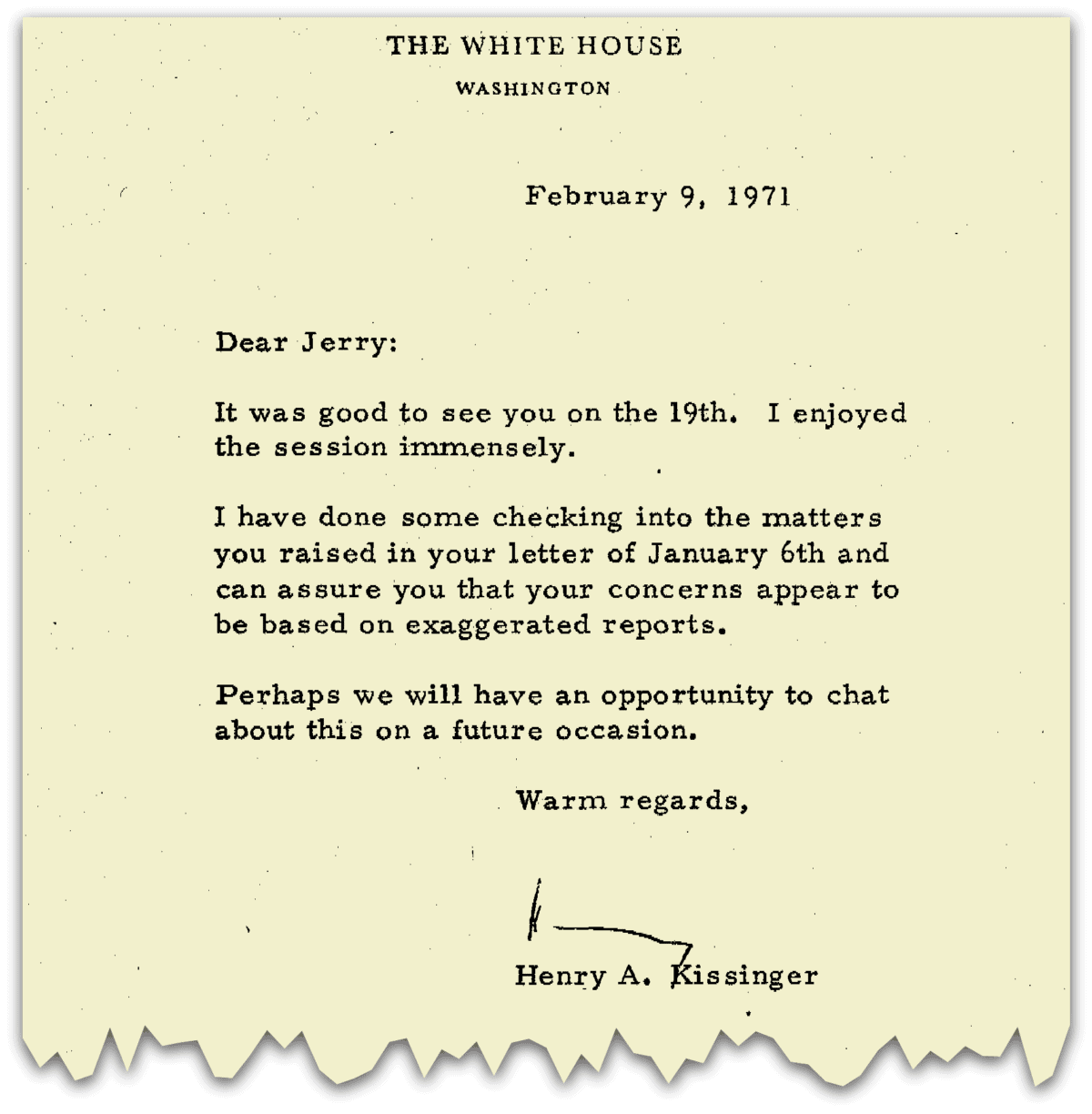
Credit: CIA Library
If true, those forces got an extra push from Cohen. A distinguished scholar, corporate lawyer and human rights activist, Cohen has been integral to China’s efforts to modernize its legal system and to the West’s efforts to understand it. In the early 1970s, he advised Henry A. Kissinger and met with Zhou Enlai. In the 1980s, he trained Chinese officials on international tax law. He also represented some of the first Fortune 500 companies seeking to do business in China. And since the 1990s, he has championed efforts such as Chen’s to use China’s own legal system to ensure human rights protections.
When Chen arrived at Newark airport weeks after his stunning escape, it was Cohen who greeted him. “Jerry and I hugged each other and cried,” Chen wrote in his book. “‘We’ve taken care of everything,’ he said, and I felt like a child in the embrace of a parent.”
The comparison comes up a lot: Cohen is often called the father of Chinese law in the U.S., and his army of former students and mentees self-identify as “Jerry’s kids.” Those “kids” have grown up into a veritable who’s who of China scholars, lawyers, officials and activists, including the president of the National Committee on U.S.-China Relations, Stephen Orlins, former Taiwan president Ma Ying-jeou, and former World Bank general counsel Ko-Yung Tung. And, like Chen, they all credit Cohen’s generosity, guidance, and fundamental belief in the importance of the work.
“There’s a legal maxim that I’ve always liked,” Cohen says of the many mentees he’s taken under his wing: “Qui facit per alium facit per se,” or he who acts through another, does the act himself.
But while Cohen sits at the top of a pyramid of actors trying to help China develop its rule of law, he has in recent years watched the Chinese Communist Party cement its rule by law. Beijing let Chen go, but a crackdown on dissent means that many activists who helped in his escape are now in prison or in exile, including the lawyers Teng Biao and Xu Zhiyong. The Hong Kong National Security Law, detention camps in Xinjiang, and a cyber surveillance state all point to an increasingly illiberal China, where the law is used as an instrument for the CCP’s control. Cohen suspects that even he would be denounced as “an enemy of the people” and turned away were he to show up at the border tomorrow.
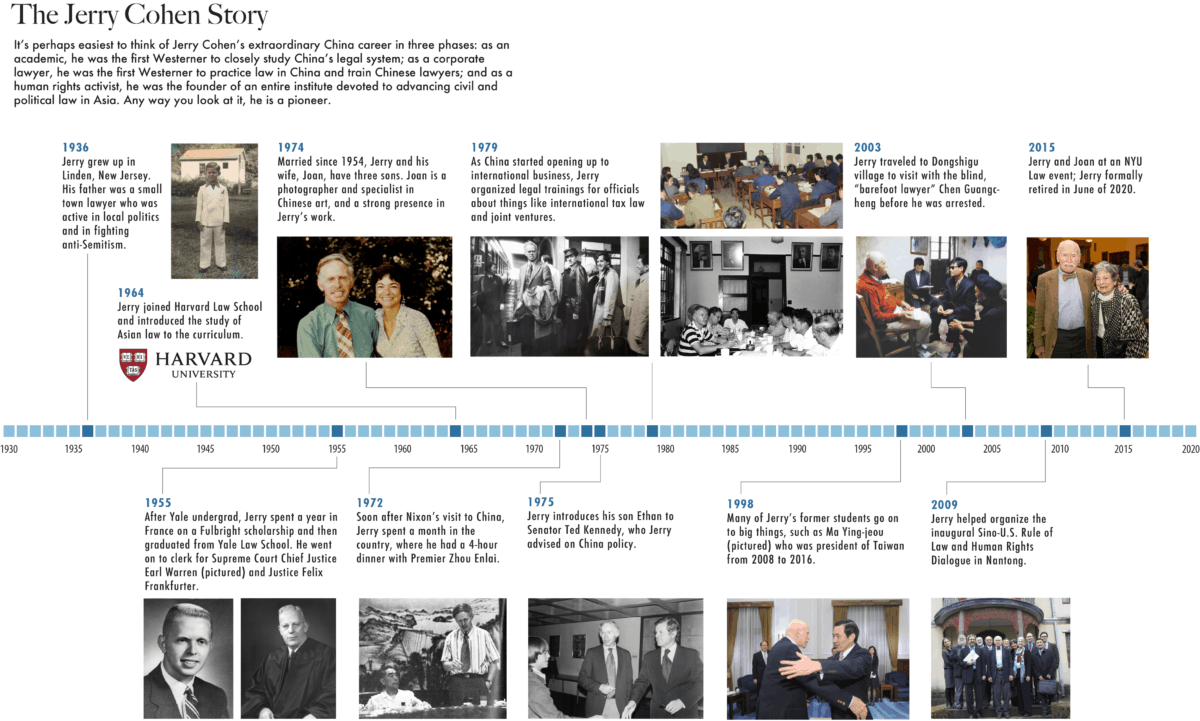
A ‘ROLE IN HISTORY’
No one who observed Cohen’s early career, including Cohen himself, would have seen China as part of his future. After growing up in a middle class Jewish family in Linden, N.J., Cohen graduated from Yale and then Yale Law School. He clerked at the Supreme Court for Chief Justice Earl Warren and Justice Felix Frankfurter, then practiced law with Dean Acheson, worked for Sen. J. William Fulbright’s Foreign Relations Committee, and in the U.S. Attorney’s office for the District of Columbia. As a politically connected Democrat, he seemed destined for a career inside the Beltway.
But instead, his career trajectory took the first of many swerves: citing the arbitrary nature of politics, Cohen left Washington for academia, becoming a law professor at the University of California, Berkeley2See this document about Cohen’s time at Berkeley in 1959.
A year later, Dean Rusk, president of the Rockefeller Foundation and soon to become John F. Kennedy’s Secretary of State, offered a four-year grant to study China’s legal system. Rusk wanted to create a new generation of American experts on China to repair the damage done by McCarthyism, and the job of finding a Berkeley candidate fell to Cohen. When he found no takers, he put himself forward.
Friends feared he was having a nervous breakdown: With no diplomatic relations with China, American scholars knew little about its laws, making Cohen’s choice seem like a dead end. Cohen saw it as an opportunity: “Why should I be No. 20 among American constitutional-law scholars? I’ve got the whole country to myself!”
So on August 15, 1960, at 9 a.m. — a startlingly precise recollection of dates and details is a Cohen trademark — he retreated to the basement of his Berkeley home and began, with the aid of tutors, the study of Mandarin.
Cohen was confident he could learn the language, but worried about the dearth of legal scholarship. The country’s legal system seemed to be a mish-mash of its old imperial system — which had been formally swept away in 1911, but remained integrated with the social organization of villages, clans and provinces — and the Soviet legal system, which China’s 1954 constitution borrowed from. While there were a few laws, they were mostly kept secret — mysteries even to those they were supposed to govern.
Without Western scholarship to piece this together, Cohen says he and others in the U.S. were woefully uninformed. “The CIA used to try and learn about China in the early 1960s by getting fisherman and businesspeople in Hong Kong to import fish and other products wrapped in local Chinese newspapers,” he recalls. “The fishermen would unwrap the fish, sell the newspapers to the CIA, and the CIA would learn about some case in some little town.”

Credit: Harvard University Press
Cohen had no choice but to do something similar. In 1963 Cohen, his wife Joan and their three sons decamped to Hong Kong for the year so Cohen could seek out refugees from the mainland. He learned the intricacies of Chinese law through marathon interviews, spending 85 hours, for instance, talking with a former Guangzhou police officer. Those interviews would form the backbone of his first book, The Criminal Process in the People’s Republic of China, 1949-1963: An Introduction, which appeared in 1968 and would shape generations of legal studies.
Upon the family’s return from Hong Kong, John K. Fairbank, the founder of Harvard’s East Asian Research Center, convinced Cohen to join Harvard Law School. At Harvard, he joined giants in the field of East Asian studies, such as Edwin Reischauer, the former ambassador to Japan, as well as up-and-comers such as Ezra Vogel and Dwight Perkins.
Cohen founded Harvard’s East Asian Legal Studies program, and his approach to teaching, according to Tung, the former World Bank general counsel and now a lecturer at Harvard Law, was “an oasis” from the dry legal model of the day: “He would take ancient Chinese legal documents and principles and bring them forward to the twentieth century and make them relevant. That was very, very different.”
Harvard also put Cohen closer to the center of U.S. power, giving him a chance to shape policy towards China at a critical time. In 1967 and 1968, he chaired a committee of East Asia experts that offered recommendations3The secret memo was leaked to a right wing magazine called Tactics, which reprinted it as a criticism of the communist professors at Harvard helping mess up America’s anti-China policy. It was also later reprinted in the congressional record. We are trying to locate a copy. If you have one please email it to contact@thewirechina.com for the next president, including the suggestion that the White House undertake a secret, and perhaps deniable, trip to China to open talks with Beijing.
Richard Nixon and his national-security advisor, Henry Kissinger — another Harvard professor and the committee’s contact — seemed to act on many of the recommendations,4The only one they ignored, according to Cohen, was to first consult the government of Japan. which culminated with Nixon’s February 1972 visit to China.5Kissinger and Cohen met occasionally to discuss China at the White House, but Cohen says the visits ended after he became an advisor to Sen. George McGovern, Nixon’s opponent in the 1972 election. Three months later, Cohen made his own month-long visit to China, where he enjoyed a four-hour dinner with Premier Zhou Enlai.
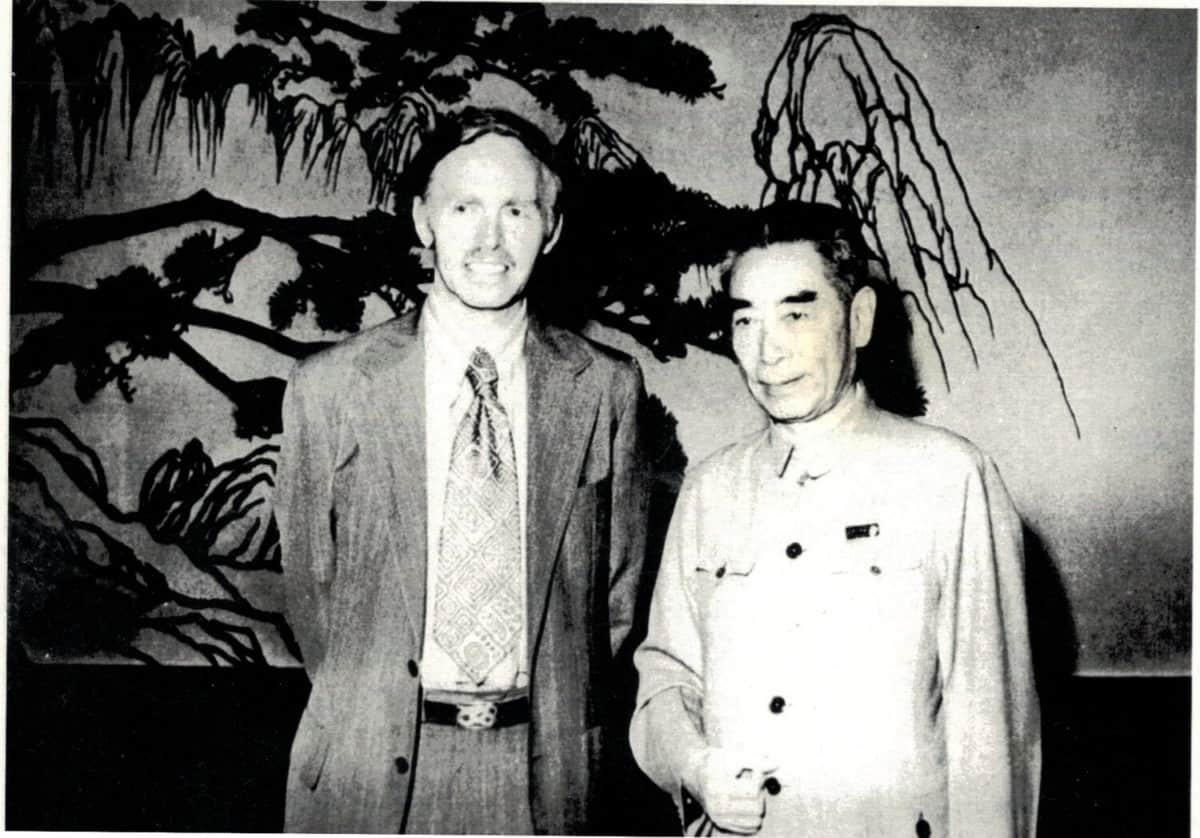
Courtesy of Jerry Cohen
Jimmy Carter’s election marked Cohen’s last flirtation with a political job; he was passed over for a State Department position.6See the recommendation from Gerald Ford. Cohen says he was considered for the position of legal advisor but the Carter team informed him that Carter felt there were too many lawyers from Harvard But in 1978, China released the Communique of the Third Plenum of the Eleventh Central Committee — the reform era’s founding charter, which put an emphasis for the first time on the rule of law. In the preceding decade, the Cultural Revolution had shut down legal institutions, attacking legal rights as a bourgeois concept. Now, the Third Plenum was boldly calling for the law to be used to protect ownership rights, paving the way for economic development.
In 1979, Cohen was again in Hong Kong, on sabbatical from Harvard. As foreign firms sought business opportunities in China for the first time, Cohen realized “this was a chance to play a role in history.” Beijing was eager to update its legal framework to enable contracts and market-based transactions, and Cohen was eager to help. He took a leave from Harvard, became a consultant for Coudert Brothers, a New York-based law firm, and spent two years in China organizing training sessions for government officials about international tax law, joint ventures and dispute resolution.
Orlins, who worked with Cohen at Coudert, recalls the deluge of business interest and the feeling of uncharted territory. “I remember seeing the chairman of Macy’s and then the chairman of Bloomingdale’s in the same week,” he says. “Normally, you draft a contract to fit the underlying law. But in China in the early days, you didn’t have the underlying law. You had to make a judgment: Do you wait for the underlying law, or do you try to create enough of it in the contract to protect the parties? We chose the latter.”
Two years’ leave was all Harvard allotted, but Cohen decided to “stick with the revolution. It was too exciting to give up.” China’s first Economic Contract Law arrived in 1981, and in the following years, a growing number of Fortune 500 companies came through to investigate the possibilities. Cohen joined the New York law firm Paul Weiss, where his clients included GM and Amoco.
“Negotiating contracts was a license to learn — and boy, I learned a lot,” Cohen says, adding that practicing “gave me a chance to sit across the table from Chinese officials and say, ‘Tell me about your business charter. Tell me about your profit-and-loss statement. Tell me about your partnership with any other Chinese organizations.’ At first they’d say, ‘Oh, those are all state secrets.’ And I’d say, ‘Well, if they’re state secrets, my client won’t invest in China. These people are not uninformed fools.’ So, they had to come through.”
Helena Kolenda, a longtime friend who worked with Cohen at the time, said there was a strong sense of camaraderie in “Jerry’s little empire” and a feeling of helping Chinese law develop. But while Cohen was undoubtedly having fun, he wasn’t perfectly suited for a life in corporate law.
“For Jerry, it was as much an intellectual venture as it was an opportunity to make money for the firm,” Kolenda says, noting that Cohen’s interests were a bit of an outlier to the firm’s main work.
The Tiananmen Square massacre in 1989 soon crystallized Cohen’s true interests. “After June 4, I decided it was more important to deal with human rights than with commercial law,” he says. “Things had shifted in China.”
He could have hung it up years ago or decades ago and retired as a partner from Paul Weiss. He didn’t. He had this whole other chapter focusing on human rights and the rule of law. It really was in his third act that he moved to the forefront.
Margaret Lewis, a former student
The criminal justice system had emerged as an instrument of suppression, and Cohen watched in horror as deans at Beijing’s budding law schools defended the shift by distinguishing between its use on “counterrevolutionaries” and “the people.” While he remained at Paul Weiss until 2000, he joined NYU’s Law School in 1990 and co-founded the U.S.-Asia Law Institute hoping to advance political and civil law in the country.
“He could have hung it up years ago or decades ago and retired as a partner from Paul Weiss,” says Margaret Lewis, a former student who now teaches at Seton Hall. “He didn’t. He had this whole other chapter focusing on human rights and the rule of law. It really was in his third act that he moved to the forefront.”
THE FINAL DISSENT
From his summer home in Truro, Massachusetts, where he and his wife of 66 years have resided since the Covid-19 pandemic began, Cohen has been an active and outspoken critic of the National Security Law in Hong Kong. Although he retired from NYU on June 30, the Hong Kong news has kept him writing, giving interviews, doing Zoom panels and checking in with his Chinese colleagues — a level of engagement that would be impressive for a man half his age.
The events unfolding in Hong Kong are just one of his concerns. The broader trend lines indicate increased CCP interference in the judiciary, with real humanitarian consequences. To this day, for instance, China executes more criminals than the rest of the world combined.7Although details about the use of capital punishment is considered a state secret, Amnesty International estimates that China still conducts thousands of executions a year. Other draconian criminal procedures endure as well, including extra-judicial kidnappings, secret detentions, indefinite house arrests and forced confessions. While there have been reforms in recent years — such as eliminating laojiao (or “re-education through labor”) in 2014 — criminal law continues to be used against Beijing’s critics. Endangering state security is a crime, as are less obvious offenses, such as undermining social stability and the so-called “pocket offenses” (koudai zui) that list “picking quarrels and provoking trouble” as a reason to detain people.
Cohen has also looked on as Beijing, under the rule of Xi Jinping, has mounted a ferocious crackdown on all forms of dissent, jailing prominent lawyers and even building mass detention centers to house the ethnic Muslim minorities in Xinjiang, in the country’s far northwest. In Hong Kong — once a model of free speech and press freedom — merely holding up a sign expressing disenchantment with Beijing could be grounds for arrest.
For a man who has devoted his life to patiently pushing the boulder of engagement with China up the hill, these rollbacks undoubtedly come with a bit of a Sisyphean sting.
“As the father of all this,” Orlins says, “I think he’s particularly hurt and disappointed at the treatment of lawyers, the lack of an independent judiciary, and Party interference in the judicial process. Things which we were hopeful for, and watched change.”
Cohen calls Beijing’s recent actions in Hong Kong a “blatant violation” of the city’s Basic Law and the Joint Declaration between the UK and China. The battle over Hong Kong’s future “is demonstrating to the world what’s at stake,” he says. China’s leadership has taken what he describes as extreme actions because they live “in fear that they’ll follow the Soviet example and go down. That’s why they’re doing what they’re doing in Hong Kong. That’s why they’re doing what they’re doing at home. They fear the danger is they’ll collapse — unless they allow absolutely no expression of freedom.”
As a substitute for freedom of expression, Cohen says, Xi has rallied China around Confucianism, once derided by Communists as a symbol of feudalism. Out of fear, Cohen says the government has gone to enormous lengths to suppress differences of opinion.
What will be the outcome of that struggle? While gloomy about the present, Cohen, ever the optimist, argues that “you have to take a long view of China.” Its relations with the world, he says, move like a pendulum. Amid the upheaval of the late 1960s, he had faith there’d be a better time, and amid the sorrows of 1989 he felt the same way. Now as then, his counsel is for patience — “make the best of the situation, hold the line and wait.”

Credit: Simon Jankowski/NurPhoto via AP Images
Cohen notes that today, even in rural areas, the Chinese have more economic and educational opportunities than ever before, and he believes those advancements have fueled a longing for freedom of expression. Cohen believes many in China want democracy — not an imitation of the U.S. model, but an East Asian version crafted for China.
“The evidence is all around,” he says. “It’s in Japan, which first did this. It’s in South Korea, which is very impressive. It’s in Taiwan, which is the most impressive, because those are people who are ethnic Chinese. Despite Japanese colonial occupation for 50 years, they are Chinese people in tradition, language, culture, values, etc. And they are now one of the most impressive democratic societies going — anywhere.”
The Chinese people are the biggest reason for Cohen’s hope. He cites their “enormous energy, enormous ability, enormous ambition, and individualism. The reason Xi Jinping has to impose this terrible dictatorship is Chinese are very individualistic people.”
He adds, “If you take a sufficiently long view, I think something is going to work out that will give people in China not only economic progress but also considerable freedom. It’s a very exciting story.”
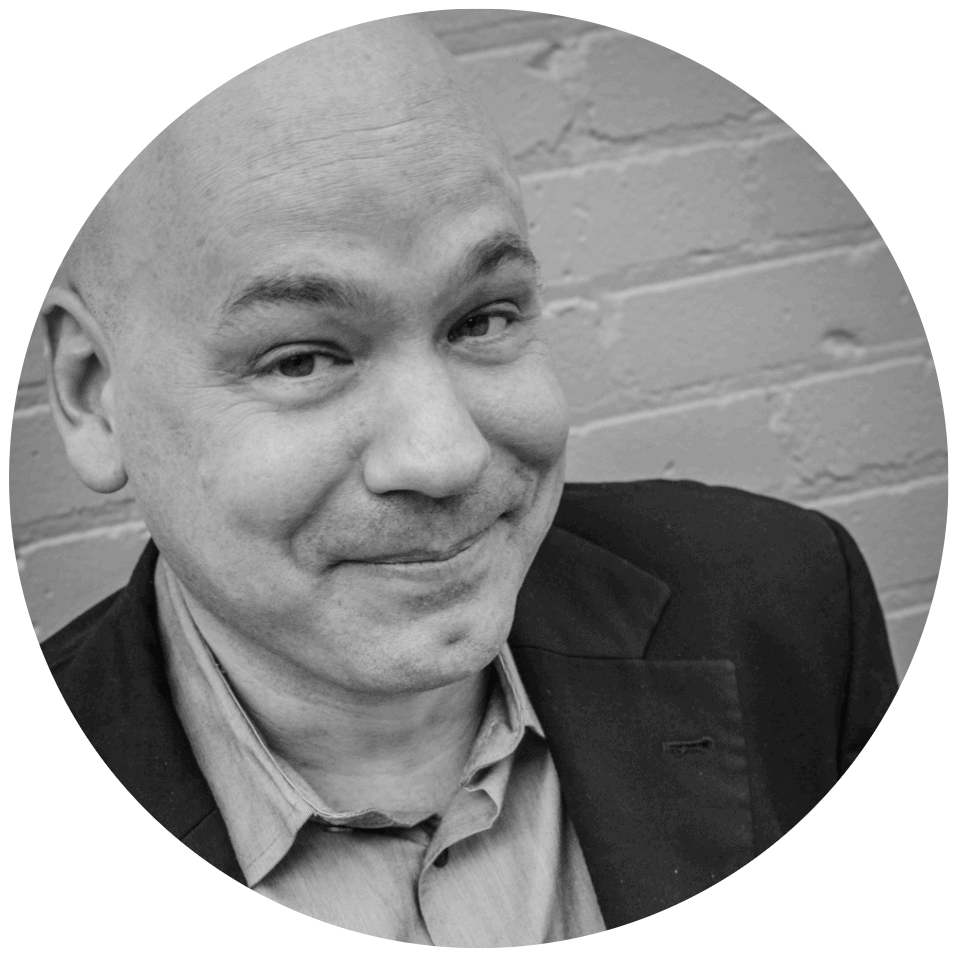
Jason Fry is a veteran of The Wall Street Journal’s online arm, where he wrote a weekly column about technology, and has also written for ESPN and the Poynter Institute. He lives in Brooklyn, N.Y. @JasonCFry

Chloe Fox is a New York-based editor at The Wire. Previously, she was Executive Editor at Boston Review and an editor at HuffPost and The New Yorker. Her writing and reporting have appeared in The Boston Globe, Boston Magazine, The Hairpin, Honolulu Civil Beat, NewYorker.com, and Vogue.com.

